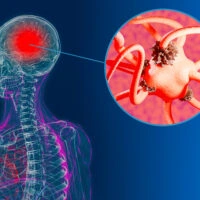Pancreatic cancer is one of the most relentless forms of the disease, leaving doctors and researchers racing against the clock to find effective treatments. But what if the answer to this medical challenge lay hidden in the leaves of a rare Jamaican cannabis plant? Recent advancements in medical research have uncovered a fascinating potential weapon in the fight against this deadly illness—a compound called cannflavin B.
This discovery has sparked excitement and intrigue, not only because of its unique origin but also for its groundbreaking promise in cancer treatment. As researchers dive deeper into clinical trials, the question arises: Could this unassuming cannabis-derived compound be the key to revolutionizing cancer therapies?
Cannflavin B: A Unique Cancer-Fighting Compound
In the quest for more effective cancer treatments, researchers have turned their attention to cannflavin B, a flavonoid found in the cannabis plant. Unlike the well-known cannabinoids THC and CBD, cannflavins are a distinct class of compounds with unique properties.
What Are Flavonoids?
Flavonoids are naturally occurring compounds present in various plants, including cannabis. They contribute to the plant’s color, flavor, and aroma and are recognized for their anti-inflammatory and antioxidant effects. Cannflavins, specifically cannflavin A, B, and C, are unique to cannabis and have been studied for their potential therapeutic benefits.
Cannflavin B’s Anti-Cancer Potential
A pivotal 2019 study published in Frontiers in Oncology investigated the effects of FBL-03G, a derivative of cannflavin B, on pancreatic cancer cells. The in vitro results demonstrated a significant increase in apoptosis (programmed cell death) in two pancreatic cancer cell lines—Panc-02 and KPC—when treated with FBL-03G. Additionally, in vivo studies showed that FBL-03G delayed both local and metastatic tumor progression in animal models, leading to increased survival rates compared to control groups.
These findings suggest that cannflavin B and its derivatives could play a crucial role in developing new cancer treatments, particularly for aggressive cancers like pancreatic cancer.
Enhancing Traditional Therapies
Beyond its direct anti-cancer effects, cannflavin B has shown potential in enhancing the efficacy of standard treatments. The same 2019 study reported that FBL-03G, when combined with radiotherapy, increased apoptosis in pancreatic cancer cells more than radiotherapy alone.
This synergistic effect indicates that incorporating cannflavin B derivatives into existing treatment protocols could improve outcomes for patients undergoing conventional therapies.
A Promising Avenue in Cancer Research
The discovery of cannflavin B’s anti-cancer properties marks a significant advancement in oncology. As research progresses, this cannabis-derived compound could become a valuable addition to the arsenal against cancer, offering hope for more effective and less toxic treatments.
In the following sections, we will explore the development of Caflanone (FBL-03G), a synthetic derivative of cannflavin B, and its journey from discovery to clinical trials.
From Discovery to Drug Development: Caflanone’s Journey

The path from identifying a promising compound to developing an effective drug is intricate and demanding. In the case of cannflavin B, this journey led to the creation of Caflanone (FBL-03G), a synthetic derivative poised to make significant strides in cancer treatment.
The Genesis of Caflanone
Flavocure Biotech Inc., a company dedicated to transforming natural products into new cures, spearheaded the development of Caflanone. Recognizing the therapeutic potential of cannflavin B, Flavocure synthesized Caflanone to harness and enhance its anti-cancer properties. This strategic move aimed to overcome challenges associated with extracting sufficient quantities of cannflavin B from natural sources, ensuring a consistent and scalable supply for research and treatment.
FDA Orphan Drug Designation
In September 2019, the U.S. Food and Drug Administration (FDA) granted Orphan Drug Designation to Caflanone for the treatment of pancreatic cancer. This status is reserved for drugs intended to treat rare diseases affecting fewer than 200,000 patients annually in the U.S. It provides incentives like tax credits, user fee waivers, and potential market exclusivity upon approval. Dr. Henry Lowe, Executive Chairman of Flavocure, remarked, “We are very pleased to have received Orphan Drug designation from the FDA for Caflanone. This is a significant milestone that underscores Flavocure’s successful innovations and drug development program.”
Advancement to Clinical Trials
Building on this momentum, Flavocure announced in May 2023 that the FDA had cleared its Investigational New Drug (IND) application for Caflanone. This pivotal clearance allows the initiation of Phase I clinical trials to evaluate the safety and preliminary anti-tumor activity of Caflanone in combination with radiotherapy for pancreatic cancer patients. Dr. David G. Brooks, Interim Chief Medical Officer of Flavocure, stated, “We are thrilled to obtain clearance to advance Caflanone (FBL-03G) into clinical trials and are excited about the prospects of what this new class of therapeutic agent may mean for cancer patients.”
Collaborative Efforts and Future Prospects
Flavocure’s collaboration with esteemed research institutions, including Harvard Medical School, has been instrumental in advancing Caflanone’s development. Preclinical studies conducted at Harvard demonstrated that Caflanone, when combined with radiotherapy, increased apoptosis in pancreatic cancer cells and delayed tumor progression in animal models.
BioSpace These promising results have paved the way for clinical translation, with the goal of reducing recurrence and improving patient survival.
As Caflanone progresses through clinical trials, it holds the potential to become a novel therapeutic option for pancreatic cancer, offering hope to patients facing this formidable disease.
The Role of Black Swan Cannabis in Cannflavin B Discovery
The journey to harnessing cannflavin B’s therapeutic potential began with the identification of a unique cannabis strain endemic to Jamaica, known as “Black Swan.” This rare strain attracted scientific interest due to its distinctive chemical profile, particularly its rich spectrum of flavonoids.
Discovery of Black Swan
Dr. Henry Lowe, Ph.D., Executive Chairman of Flavocure Biotech Inc., discovered the Black Swan strain in Jamaica. He noted its high flavonoid content, which set it apart from other cannabis varieties. Typically, cannabis plants contain less than 0.14% flavonoids, but Black Swan exhibited a significantly higher concentration.
Challenges in Natural Extraction
Despite Black Swan’s promising flavonoid profile, extracting sufficient quantities of cannflavin B for pharmaceutical use posed challenges. The low natural abundance of this compound in the plant made large-scale extraction impractical. Consequently, Flavocure Biotech opted to synthesize cannflavin B through proprietary methods, ensuring a consistent and scalable supply for drug development.
Cultural and Scientific Significance
The discovery of Black Swan underscores the rich biodiversity of Jamaica and its potential contributions to medical research. It highlights the importance of exploring indigenous plant species for novel therapeutic agents. Moreover, the transition from natural extraction to synthetic production exemplifies the innovative approaches necessary to translate botanical discoveries into viable medical treatments.
Supporting Innovative Cancer Research
Advancements in cancer treatment, like the development of Caflanone, stem from extensive research, collaboration, and public support. Here are some practical ways individuals can contribute to furthering these breakthroughs:
1. Financial Contributions
- Donate to Research Institutions: Supporting reputable organizations like the American Cancer Society or specialized cancer research centers provides the necessary funding for cutting-edge studies.
- Participate in Fundraising Initiatives: Engage in activities such as charity walks, auctions, or donation drives to raise both awareness and funds.
2. Advocacy and Awareness
- Support Research Funding: Advocate for government policies that allocate more resources to cancer research and innovative treatments.
- Educate and Share Knowledge: Spread awareness about recent developments in cancer research, helping others understand its importance and potential.
3. Clinical Trial Participation
- Volunteer for Trials: If eligible, participating in clinical trials contributes directly to the advancement of experimental therapies, bringing new treatments closer to approval.
- Encourage Enrollment: Share information about ongoing trials to help researchers connect with potential participants.
4. Volunteer Your Time
- Join Nonprofits and Research Foundations: Offer your time to organizations involved in cancer research or patient support, helping with fundraising, administrative tasks, or outreach programs.
5. Stay Informed and Involved
- Follow Research Updates: Keeping up with the latest advancements not only broadens your understanding but also helps you identify ways to contribute effectively.
- Engage in Discussions: Joining community forums or attending talks on cancer research fosters a collective commitment to tackling this global challenge.
By taking these actions, individuals can help accelerate the pace of innovative cancer research, offering hope to millions affected by the disease. Each effort counts in the collective endeavor to transform lives and create a future where more effective treatments are readily available.

A New Hope in the Fight Against Cancer
The exploration of cannflavin B, a flavonoid derived from a rare Jamaican cannabis strain, has opened promising avenues in the battle against pancreatic cancer. The development of Caflanone (FBL-03G), a synthetic derivative of cannflavin B, exemplifies the innovative strides being made in oncology. With the U.S. Food and Drug Administration granting clearance for clinical trials, the medical community stands on the cusp of potentially groundbreaking treatments.
As these trials progress, the collaborative efforts of researchers, institutions, and patients are paramount. The journey from discovery to clinical application underscores the importance of continued support for scientific innovation and ethical research practices. By staying informed and engaged, we contribute to a collective endeavor that brings hope to those affected by pancreatic cancer and other formidable diseases.
In this evolving landscape, the fusion of traditional knowledge and modern science offers a beacon of optimism. The story of cannflavin B and Caflanone serves as a testament to the potential that lies in nature, waiting to be harnessed for the betterment of human health.
Sources:
- Flavonoid Derivative of Cannabis Demonstrates Therapeutic Potential in Preclinical Models of Metastatic Pancreatic Cancer https://www.frontiersin.org/journals/oncology/articles/10.3389/fonc.2019.00660/full
- Cannabinoids: potential anticancer agents. Nat Rev Cancer. (2003) https://www.nature.com/articles/nrc1188
- nhancing the therapeutic efficacy of cancer treatment with cannabinoids. Front Oncol. (2018) https://www.frontiersin.org/journals/oncology/articles/10.3389/fonc.2018.00114/full



